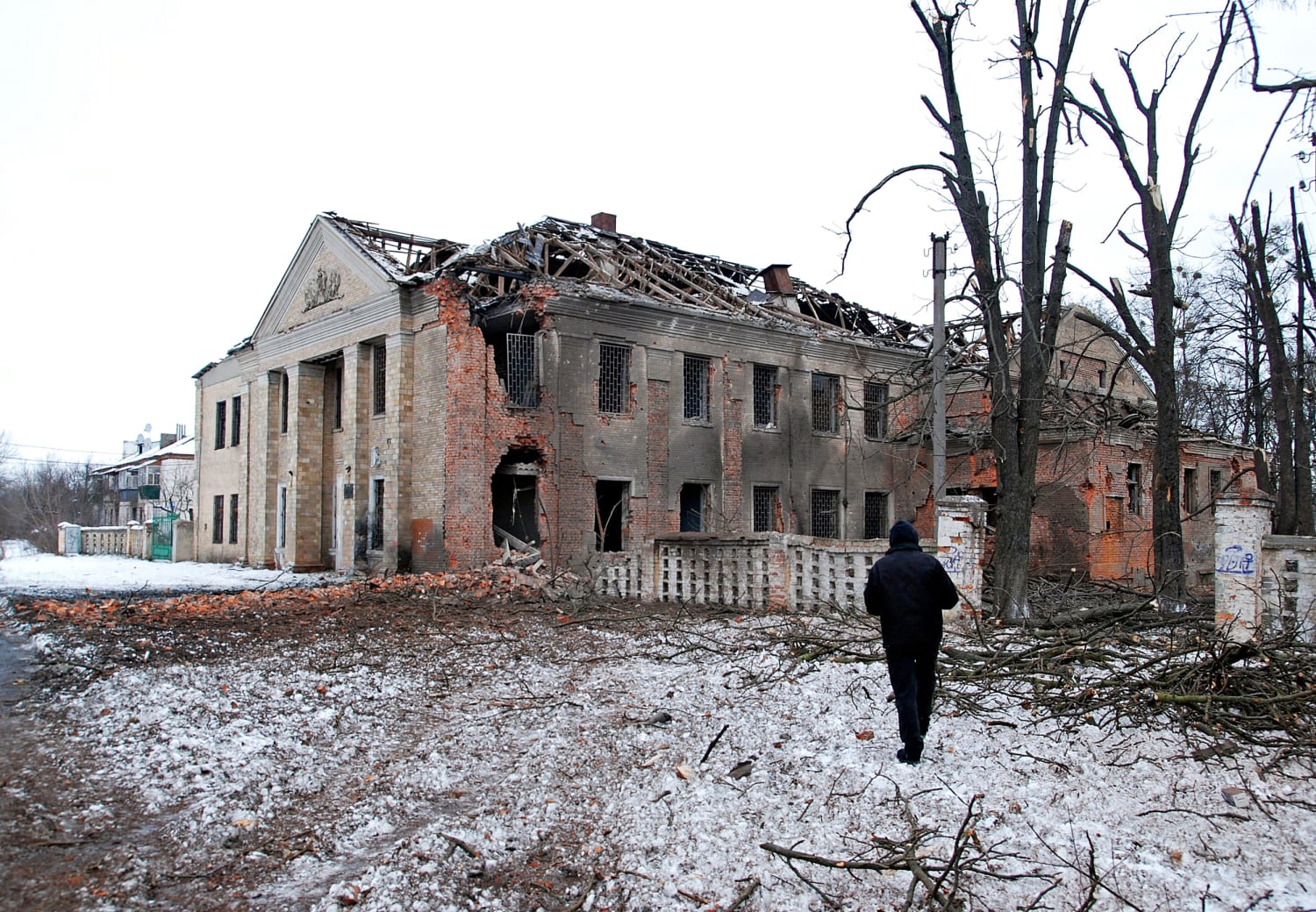Not only is there no evidence of a genocide against Russian speakers in Ukraine, but many Ukrainian Russian speakers reject Putin’s claims of discrimination against them. In fact, his military campaigns may be pushing more of them into switching from speaking Russian to speaking Ukrainian.
The languages are distinct but share many words, and as a rule of thumb Ukrainian is spoken more widely in the west of the country than in the east, which is closer to the border with Russia.
Many Ukrainians are bilingual.
Ukraine’s Parliament passed a language law in 2019 that mandates the use of Ukrainian in most areas of public life, stoking tensions with some Russian speakers and giving ammunition to those accusing Kyiv of Russo-phobia.
For the most part, though, Ukrainians switch between Russian and Ukrainian without batting an eye.
“Almost everyone in Kharkiv speaks Russian, and no one tells us to speak Ukrainian. It’s your choice,” said Serhii Shpak, 28, who fled northeastern Kharkiv last week for relative safety farther west.
“There is no racism or any other kind of ism. … Russian- speaking people don’t need any protection in Ukraine,” said Shpak, also a web developer.
Although Ukrainian is now the default language throughout the country for signs, menus and other everyday documentation, Russian versions are common. Shop and restaurant workers can usually switch effortlessly between the two languages.
Russian is the main language in Kharkiv, Ukraine’s second-largest city and only 25 miles from the Russian border in the country’s northeast. Yet it has been pummeled by Russian missile attacks in recent days, with civilian areas leveled.
Its treatment may bode ill for other parts of Ukraine less rooted in a shared culture with its neighbor.
Another stark counter to Putin’s narrative and justification for war is Ukrainian President Volodymyr Zelenskyy, himself a Russian speaker.
Efforts to promote the Ukrainian language have gone hand in hand with fostering a stronger sense of independent national identity since the Euromaidan mass protest movement about a decade ago, which rejected closer ties with Russia and demanded greater integration with western Europe.
Russia’s subsequent 2014 annexation of the Crimean Peninsula and its backing of separatists in the Donbas region of eastern Ukraine has only furthered the cause of those promoting the Ukrainian language.
“Over the last eight years we experienced several waves of growing popularity of the Ukrainian language. The first wave began … in 2013 and after the start of the Russian-Ukrainian war in 2014,” said Ukrainian language teacher Sofia Butko, 32.
“My husband and I, a native of Donbas, made an unequivocal decision — from that time to speak only Ukrainian. Most people felt the need for self-identification and self-determination.”
In response to rising demand, Butko set up Ukrainian language clubs, and while some students attend to improve their Ukrainian to have better access to public services and jobs, she said many want to learn out of a sense of national pride and identity.
A survey by the Kyiv International Institute of Sociology found a marked decline in the percentage of people who think Russian should be studied just as much as Ukrainian in schools, dropping to 29.9 percent in 2019 from 46 percent in 1998.
It also found that 46 percent of Ukrainians and their closest relatives speak only or mostly Ukrainian, compared with 28.1 percent for Russian, without giving comparable earlier data.
The popularity of Ukrainian seems set to increase as Russia’s war with Ukraine continues.
The start of the invasion on Feb. 24 triggered a wave of social media posts from Ukrainians pledging to switch to Ukrainian as their first language.
Earlier that month Natalya Kovalenko, 48, an insurance industry worker, attended a rally in Kharkiv’s Freedom Square calling for Ukrainian unity and denouncing Putin.
“All of us speak both Russian and Ukrainian, but I speak in Ukrainian because Russian is dangerous,” she said, draped in a Ukrainian flag.
“Russian propaganda says they need to protect Russian speakers, so it’s better to speak Ukrainian.”
Within a few weeks the spot where she had been standing was devastated by a Russian missile strike.
Source: | This article originally belongs to Nbcnews.com










